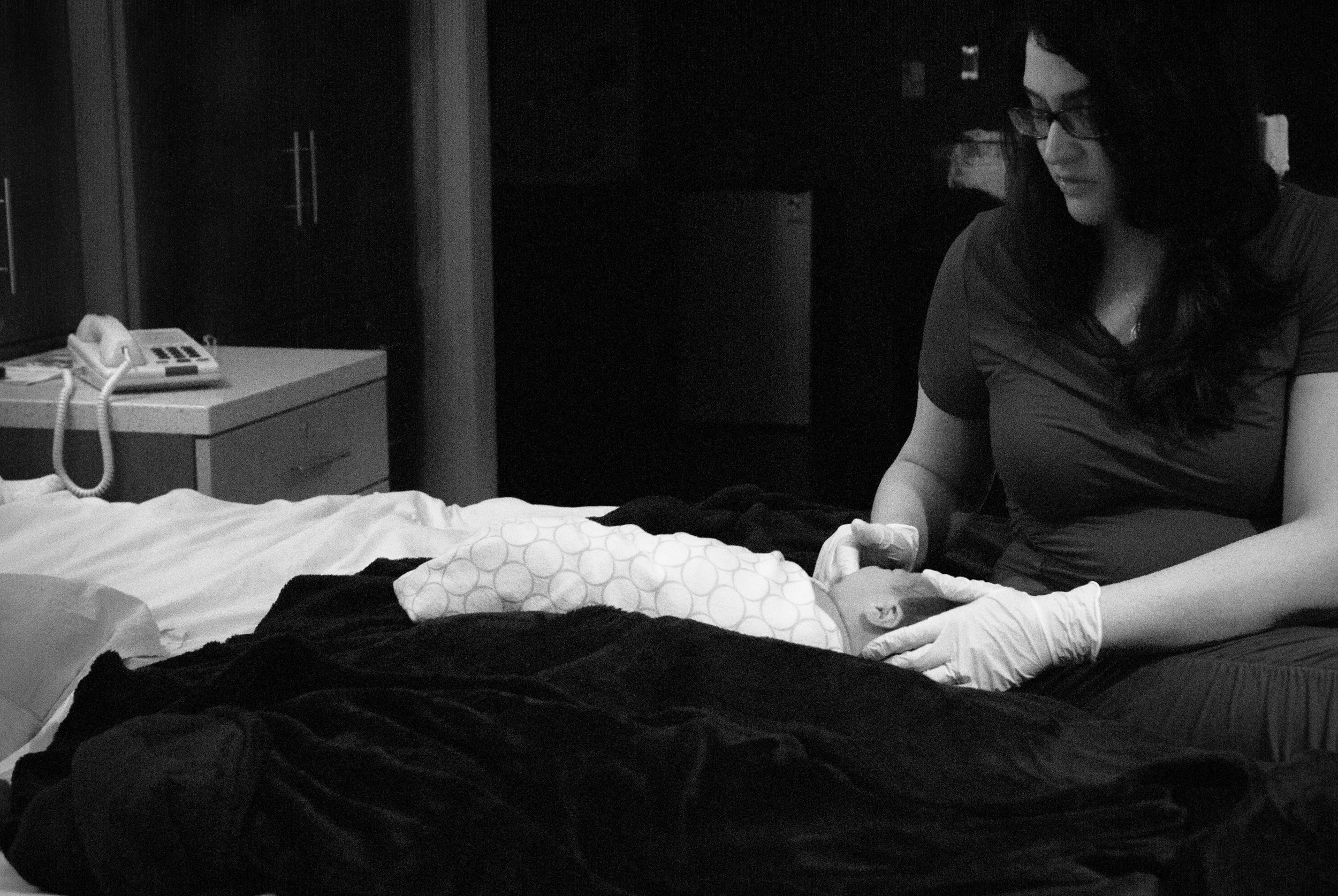What About Tongue Ties?
Immediately after my third son was born, I assessed his mouth and announced,
“Thank goodness! No ties!”
The neonatologist who had been on standby in the corner of the delivery room laughed and said,
“Who the heck says THAT right off the bat?”
My nurse and I chuckled as she told him, “A mom who is also a lactation consultant, that’s who!”
These days, parenting circles swirl with the mention of the words “tongue tie," “lip tie,” and the decision to revise or not to revise. It's clear that the acknowledgement of these tethered oral tissues has increased exponentially in recent years. I will admit that, as an IBCLC in Cincinnati, these conversations can sometimes exhaust me.
ON THE ONE HAND, I HAVE EDUCATED AND FOUGHT BY MY CLIENTS’ SIDES OVER THE YEARS TO RECEIVE THOROUGH AND PROPER ASSESSMENT, DIAGNOSIS, AND TREATMENT.
ON THE OTHER HAND, I HAVE WITNESSED TIES BE BLAMED AS A GENERAL CATCH-ALL FOR ANY SEEMINGLY ANOMALOUS INFANT BEHAVIOR.
SOMETIMES THEY ARE TO BLAME, OF COURSE. AND SOMETIMES, THEY AREN’T.
Tongue tie refers to an unusually tight or short lingual frenulum which inhibits normal function of the tongue. While some practitioners refer to the surge in parental concerns as a fad, the truth is that tongue tie can be a literal pain for breastfeeding parents, as well as possibly causing short- and long-term developmental issues such as problems with gaining weight appropriately, eating solid foods, impaired speech, and dental concerns. Mention of tongue tie can be found even in Biblical texts (Mark 7:35 is thought to be in reference to a tongue tie being released), which goes to show they have been a concern for at least a few thousand years. Lip ties are unusually short or tight labial frenulums and are discussed with increasing frequency.
Specifically in regards to breastfeeding, ties can be the culprit behind nipple abrasions and poor milk transfer. It means nothing for a latch to “look good” if it is painful for a parent. Pain tells us further exploration is needed.
Most of the time, it is a relatively simple fix- adjustment of the nursing position and teaching parents how to obtain a deep, comfortable latch.
However if we’ve reviewed the basics, made appropriate changes, and pain and problems persist, it’s time to delve a little deeper. Sometimes tongue ties can be obvious- such as when they extend to the tip of the baby’s tongue and cause a heart-shape. But what I’ve most commonly observed as an IBCLC are ties that do not cause the heart-shape or blunt edge to the infant tongue.
I risk being chased after with torches and pitchforks when I say further that it is possible to leave a tie and forgo further assessment and treatment. Parents have a choice in how to move forward. I, for one, am in favor of trying the least-invasive methods first.
For some nursing dyads, this is the appropriate path and they go on and do well with breastfeeding and other areas of normal child development. In other cases, issues are not going to resolve until we revise the restriction and free the tongue to do what it was meant to do. In fact, it can spell the end of breastfeeding and lead to the infant developing compensatory feeding and breathing behaviors.
WHAT’S A PARENT TO DO?
I believe best practice is for struggling breastfeeding dyads to be seen by and assessed by a qualified IBCLC. Referral to a well-trained and experienced provider, be they a dentist or ENT, is an appropriate next step, especially if a tongue/lip tie is suspected. The benefits and risks of both leaving the tongue/lip ties alone or treating them should be discussed.
For some, leaving the ties in place can lead to the end of breastfeeding, but for others, pursuing revision immediately has been equally detrimental. Parents need to be given well-rounded information by well-trained providers to make the best decision for their children.
Are you concerned that your baby may have a lip or tongue tie?
Unsure of whether revision is the right choice for your baby?
Recently revised and need additional help from someone qualified to assist with ongoing breast/bottle feeding hurdles?
SCHEDULE AN IN-HOME LACTATION CONSULTATION WITH JOELLEN NOW.
JoEllen Noble's extensive training, education and nearly seven years experience as an IBCLC* (10 years total supporting breastfeeding dyads as a peer counselor, Certified Lactation Counselor, Breastfeeding Coordinator, and then IBCLC) means you have access to specialized lactation support and a tailored breastfeeding care plan specific to you and your baby.
*International Board-Certified Lactation Consultants (IBCLCs) are the gold standard for breastfeeding care.


